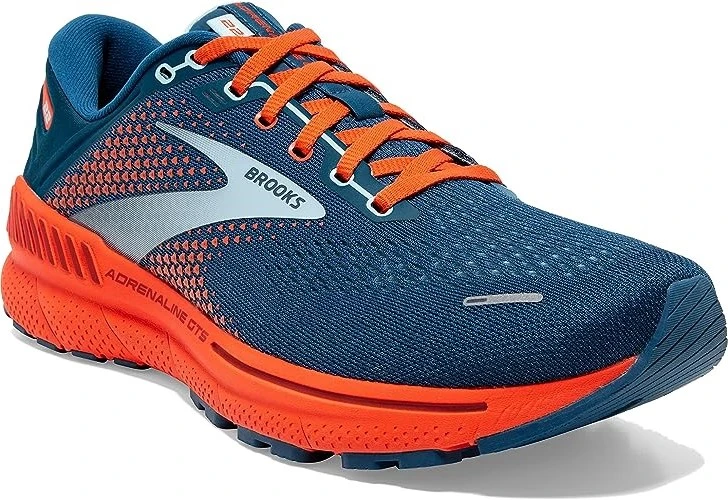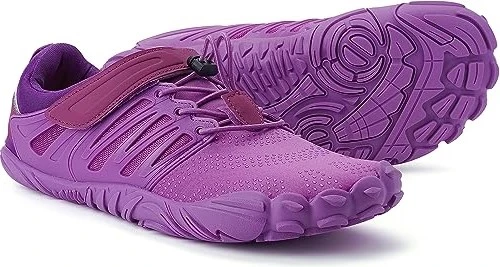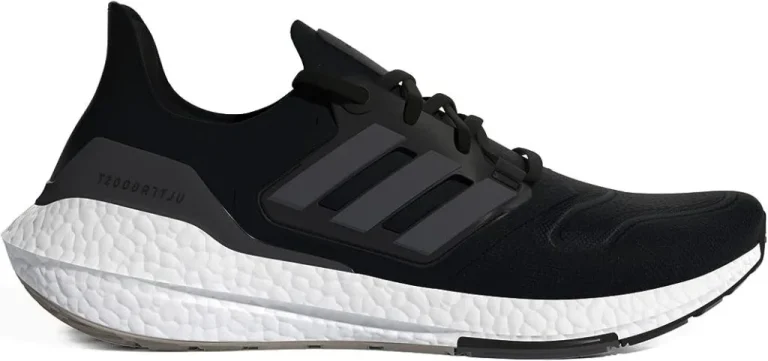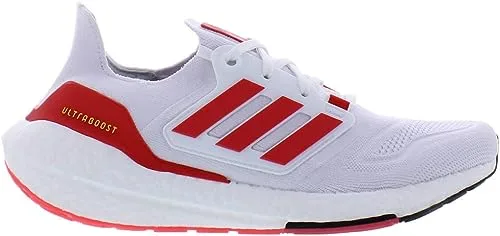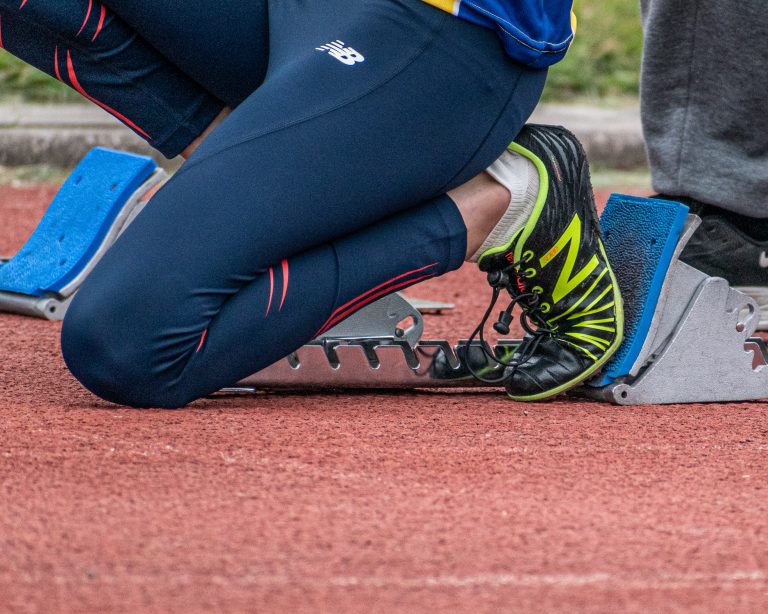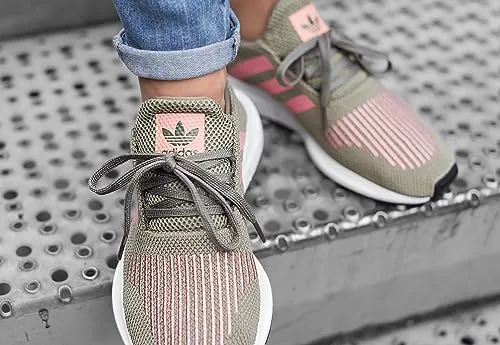Best Running Shoes For Knee Pain
Are you someone who loves to run but struggles with knee pain? Don’t let knee discomfort hold you back from enjoying your favorite activity. The right pair of running shoes can make a world of difference. In this blog post, we will explore the best running shoes specifically designed to alleviate knee pain. These shoes are not only comfortable, but they also provide the necessary support and cushioning to protect your knees during your runs.
“As an Amazon Associate, I earn from qualifying purchases. This means that if you click on an Amazon link and make a purchase, I may receive a small commission.”

What is knee pain?
Knee pain refers to discomfort or pain that occurs in or around the knee joint. It can affect people of all ages and can be caused by various factors, including injuries, overuse, arthritis, or underlying medical conditions. The severity and location of knee pain can vary depending on the cause and individual circumstances.
Symptoms of knee pain
Pain: The most common symptom of knee pain is aching or sharp pain in or around the knee joint. The pain may be constant or intermittent and can range from mild to severe.
Swelling: Swelling around the knee joint is another common symptom. It can be accompanied by warmth and redness in the affected area.
Stiffness: Knee pain often leads to stiffness, making it difficult to fully bend or straighten the knee. This can affect mobility and range of motion.
Instability: Some individuals may experience a feeling of instability or a sensation that the knee is giving way or buckling. This can be especially concerning during weight-bearing activities.
Clicking or popping sounds: In some cases, knee pain may be accompanied by clicking, popping, or grinding sounds when moving the knee joint.
Difficulty walking or bearing weight: Severe knee pain can make it challenging to walk, climb stairs, or bear weight on the affected leg.
Best Running Shoes To Help Relief In The Knee Pain
Here are some of the best running shoes specifically designed to alleviate knee pain:
1) Brooks Ghost 14 Neutral Running Shoe
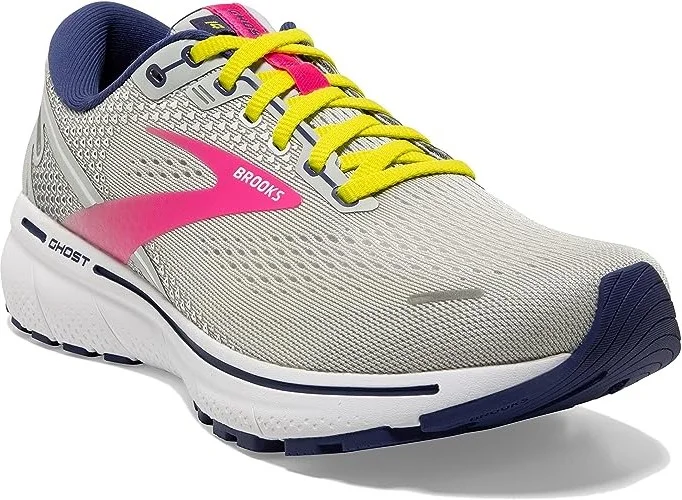
The Brooks Ghost 14 Neutral Running Shoe is an excellent choice for both men and women seeking relief from knee pain. Key features of this shoe include its plush cushioning and smooth ride, providing optimal comfort and support.
The shoe’s DNA Loft foam and BioMoGo DNA technology offer exceptional cushioning and responsiveness, reducing the impact on the knees. The Segmented Crash Pad ensures a smooth heel-to-toe transition, while the engineered mesh upper provides breathability and a secure fit.
It’s clear that many users have found these shoes to be a reliable solution for knee pain. With its combination of comfort, support, and advanced technologies, the Brooks Ghost 14 is a top pick for runners with knee pain.
2) ASICS Gel-Kayano 28 Running Shoes
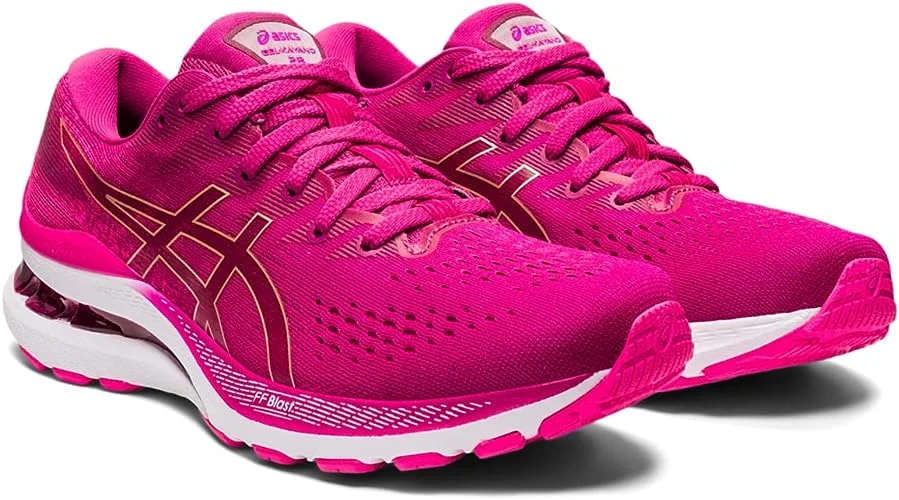
The ASICS Gel-Kayano 28 Running Shoes are highly recommended for both men and women dealing with knee pain. These shoes offer exceptional support and cushioning to alleviate knee discomfort.
Key features include the renowned ASICS Gel cushioning system, which absorbs shock and provides superior impact protection. The FlyteFoam midsole delivers lightweight responsiveness, ensuring a smooth and comfortable ride.
The Dynamic DuoMax Support System enhances stability, while the breathable mesh upper offers a secure and breathable fit. With its high customer satisfaction and advanced features, the Gel-Kayano 28 is an excellent choice for runners seeking relief from knee pain.
3) New Balance Fresh Foam 1080 V11 Running Shoe
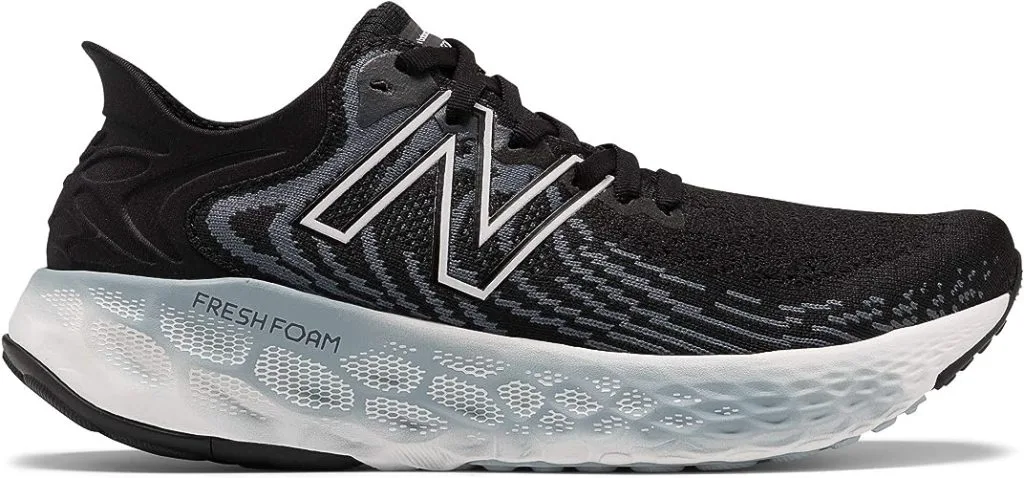
The New Balance Fresh Foam 1080 V11 Running Shoe is a top choice for both men and women experiencing knee pain. These shoes are designed to provide exceptional support and cushioning.
Key features include the Fresh Foam midsole, which offers plush and responsive cushioning for a comfortable ride. The Ortholite sock liner enhances comfort and moisture-wicking properties. The Hypoknit upper provides a secure and flexible fit.
In addition, the shoe’s durable rubber outsole offers excellent traction. With its high customer satisfaction and advanced features, the Fresh Foam 1080 V11 is a reliable option for runners seeking relief from knee pain.
4) Saucony Triumph 19 Running Shoe
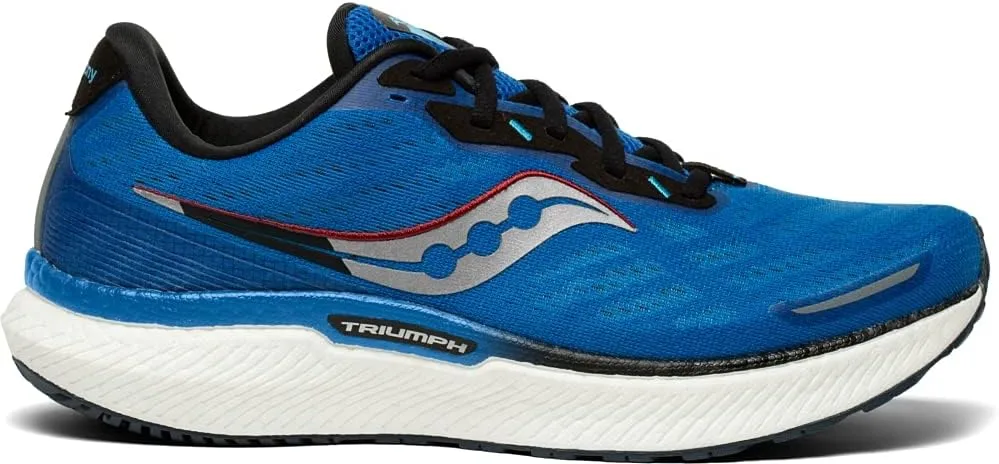
The Saucony Triumph 19 Running Shoe stands out as a top choice for both men and women seeking relief from knee pain.
These shoes offer exceptional comfort and support. Their plush cushioning, combined with a responsive midsole, effectively absorbs impact, reducing stress on the knees.
The Triumph 19’s durable construction and supportive design provide a stable and smooth-running experience. Whether you’re a man or a woman, these shoes offer a winning combination of comfort, performance, and positive user reviews.
5) Brooks Adrenaline GTS 22 Supportive Running Shoe
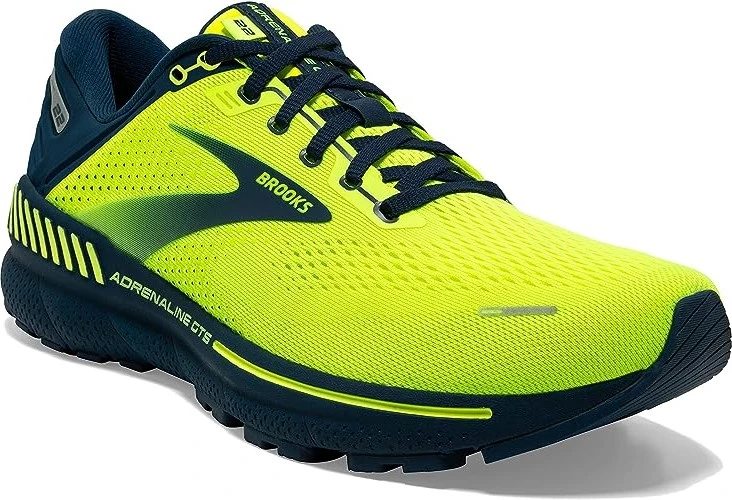
The Brooks Adrenaline GTS 22 Supportive Running Shoe is highly regarded as one of the best options for both men and women seeking relief from knee pain.
Key features of this shoe include its exceptional stability and support, making it ideal for individuals with knee discomfort. The GuideRails holistic support system helps prevent excess movement and promotes proper alignment, reducing stress on the knees.
The DNA Loft cushioning in the midsole provides a comfortable and responsive ride, while the engineered mesh upper offers breathability and a secure fit. With its high customer satisfaction and advanced features, the Adrenaline GTS 22 is a top choice for runners dealing with knee pain.
Related To: Best Volleyball Shoes For Middle Blocker
Related To: 5 Best Tennis Shoes For Achilles Tendonitis
Cures and Treatments for Knee Pain:
Rest and activity modification: Resting the knee and avoiding activities that aggravate the pain can help reduce inflammation and promote healing.
Modify activities to avoid high-impact or repetitive movements that strain the knee joint.
Ice and heat therapy: Applying ice packs to the affected area can help reduce swelling and inflammation.
Heat therapy, such as warm compresses or hot showers, can help relax muscles and alleviate pain.
Pain medication: Over-the-counter nonsteroidal anti-inflammatory drugs (NSAIDs), such as ibuprofen or naproxen, can help reduce pain and inflammation.
Consult with a healthcare professional before taking any medication, especially if you have underlying medical conditions.
Physical therapy: A physical therapist can provide targeted exercises and stretches to strengthen the muscles around the knee, improve flexibility, and promote proper alignment.
They may also use modalities like ultrasound or electrical stimulation to reduce pain and inflammation.
Knee braces or supports: Depending on the cause of knee pain, wearing a knee brace or support can provide stability and relieve pressure on the joint.
These devices can be particularly helpful for individuals with ligament injuries or arthritis.
Injections: Corticosteroid injections can be administered by a healthcare professional to reduce inflammation and provide temporary pain relief.
Hyaluronic acid injections may also be used to lubricate the joint and alleviate symptoms of knee osteoarthritis.
Surgical intervention: In severe cases, when conservative treatments do not provide sufficient relief, surgery may be considered.
Surgical options range from arthroscopic procedures to repair or remove damaged tissues to joint replacement surgery for severe arthritis.
Weight management: Maintaining a healthy weight or losing excess weight can help reduce stress on the knee joints, potentially alleviating pain and preventing further damage.
Factors to Consider When Choosing The Best Running Shoes for Knee Pain
When choosing running shoes for knee pain, there are several factors to consider. These factors can help ensure that you select shoes that provide proper support, cushioning, and stability to alleviate knee pain and minimize the risk of further injury. Here are the key factors to consider:
1) Cushioning
Adequate cushioning is essential to absorb shock and reduce the impact on your knees while running.
Look for shoes with ample cushioning in the midsole and heel areas. This can help provide a softer landing and minimize the stress on your knees.
2) Stability
Stability is crucial in preventing excessive pronation or supination, which can lead to knee pain. Look for shoes that offer stability features such as medial posts or dual-density midsoles.
These features can help control overpronation and promote proper foot alignment during the running gait.
3) Arch Support
Consider your foot arch type when selecting running shoes. If you have low arches (flat feet), choose shoes with adequate arch support to help maintain proper foot alignment and reduce stress on the knees.
If you have high arches, look for shoes with cushioning and flexibility to absorb shock effectively.
4) Flexibility
Shoes with appropriate flexibility allow for natural foot movement during the running stride. They should bend at the ball of the foot, promoting a smooth and efficient gait.
Avoid shoes that are too stiff, as they can restrict foot motion and potentially increase knee pain.
5) Proper fit
Proper fit is crucial for comfort and support. Ensure that the shoes have enough room in the toe box to prevent crowding and allow natural toe splay.
The heel should be snug but not too tight to prevent slippage. Consider trying on shoes in the afternoon when your feet are slightly swollen to ensure a better fit.
6) Pronation Control
Determine your pronation type (neutral, overpronation, or supination) to choose shoes that provide the appropriate level of support.
Overpronators may benefit from stability shoes, while neutral runners may opt for neutral cushioned shoes. Supinators may require shoes with more cushioning and flexibility.
7) Weight
Consider the weight of the running shoes. Heavier shoes can add more strain to your knees, especially during long-distance runs.
Look for lightweight options that provide adequate cushioning and support without unnecessary bulk.
8) Arch Type
Understanding your arch type can help guide your shoe selection. There are three main arch types: low arches (flat feet), normal arches, and high arches.
Each type requires different levels of support and cushioning to promote proper foot alignment and reduce knee stress.
9) Brand and Model
Different shoe brands and models offer varying features and technologies.
It’s important to research and read reviews to find shoes that have a reputation for providing excellent support and cushioning for runners with knee pain.
10) Gait Analysis
If you’re unsure about your specific needs, consider getting a gait analysis.
A gait analysis can help identify any biomechanical issues in your running form and guide you toward the most suitable running shoes for your individual needs.
Conclusion
Finding the best running shoes for knee pain is a crucial step towards enjoying a pain-free running experience. Remember to prioritize cushioning, stability, and support when selecting your shoes. Don’t hesitate to consult with a specialist for personalized advice.
With the right shoes and proper care, you can continue to pursue your running goals while keeping knee pain at bay. Lace-up, hit the road, and embrace the joy of running.

